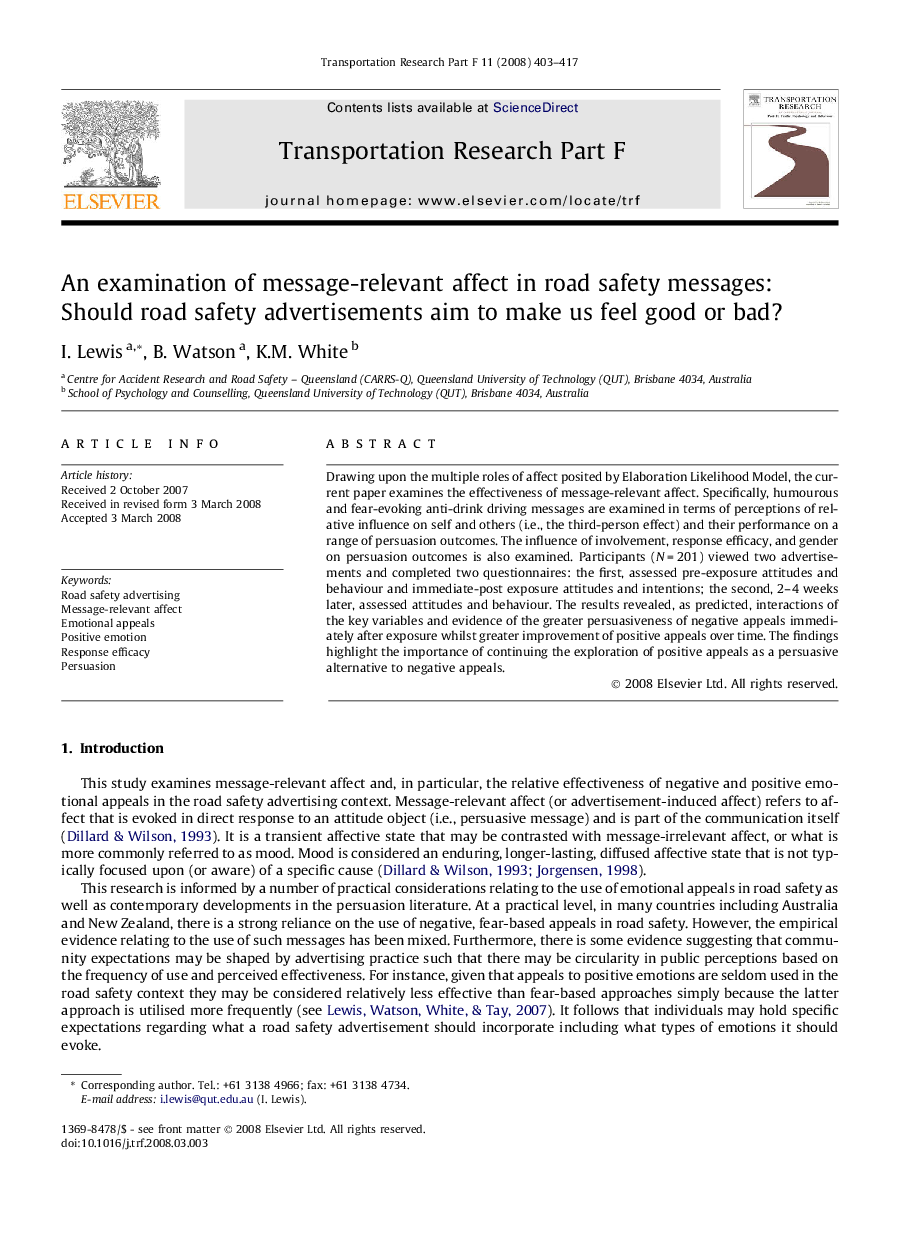| کد مقاله | کد نشریه | سال انتشار | مقاله انگلیسی | نسخه تمام متن |
|---|---|---|---|---|
| 898125 | 915236 | 2008 | 15 صفحه PDF | دانلود رایگان |

Drawing upon the multiple roles of affect posited by Elaboration Likelihood Model, the current paper examines the effectiveness of message-relevant affect. Specifically, humourous and fear-evoking anti-drink driving messages are examined in terms of perceptions of relative influence on self and others (i.e., the third-person effect) and their performance on a range of persuasion outcomes. The influence of involvement, response efficacy, and gender on persuasion outcomes is also examined. Participants (N = 201) viewed two advertisements and completed two questionnaires: the first, assessed pre-exposure attitudes and behaviour and immediate-post exposure attitudes and intentions; the second, 2–4 weeks later, assessed attitudes and behaviour. The results revealed, as predicted, interactions of the key variables and evidence of the greater persuasiveness of negative appeals immediately after exposure whilst greater improvement of positive appeals over time. The findings highlight the importance of continuing the exploration of positive appeals as a persuasive alternative to negative appeals.
Journal: Transportation Research Part F: Traffic Psychology and Behaviour - Volume 11, Issue 6, November 2008, Pages 403–417